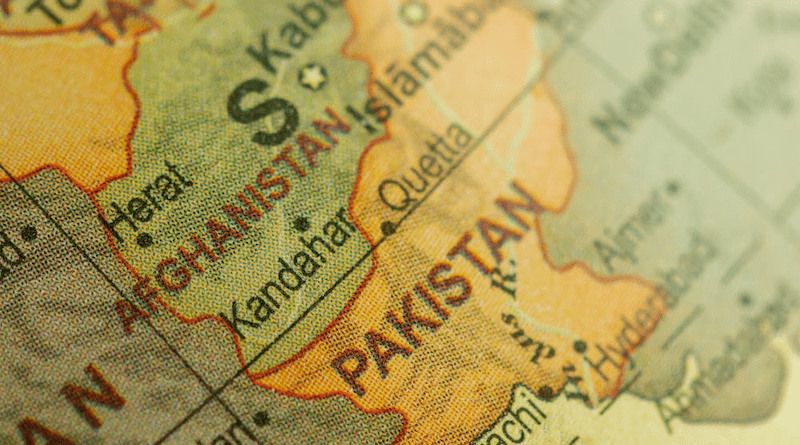Pakistan Elections 2024: Exploring Likely Outcomes – OpEd
According to a report by Pakistan’s leading brokerage house, Topline Securities, after a lot of uncertainties, Pakistan Elections are all set for February 8, 2024, to elect representatives for the National and Provincial Assemblies for the next five years.
Many political analysts a few weeks back were not sure about timely elections due to legal, operational, and weather-related issues. Now it seems that all these issues have been settled, and the process is likely to be completed on time.
According to detailed strategy note titled ‘Stock Market Recovery Has Just Begun; Index Likely to Reach 75,000 in 2024,’ dated November 18, 2023, mentioned that things are now looking stable, and elections are likely to happen on February 8, 2024, contrary to earlier fears that elections may be delayed for a few years.
A smooth transfer of power to an elected government will help overcome concerns of bilateral and multilateral lenders, including the IMF, at a time when Pakistan is facing a severe external debt repayment challenge.
IMF in its country report in July 2023, stated that the new Stand By Agreement (SBA), can play a crucial role in anchoring policies ahead of the national elections due in the fall and until a new government is formed. IMF team also met with leaders of major political parties in Pakistan to get assurances of support for key objectives ahead of final approval of US$3 billion SBA in July 2023 crucial to save the country from default.
With only two weeks left for the Elections, political activities and election campaign is not what it used to be. This could be due to lack of interest by political parties or may be due to lesser competition in most of the constituencies after PTI did not get the “Bat” symbol.
Looking at the manifestos and promises of major parties, it seems no one is addressing the key economic challenges faced by Pakistan. Most of the parties are focusing more on the popular measures to gain public confidence amid record high inflation.
Comparing the performance of three large political parties in their last tenure, PML-N and PTI have performed relatively well on key economic indicators as against PPP. This has also being endorsed by a recent news analysis by Bloomberg whereas per Misery Index, PML-N (score 14.5%) has better record on managing the economy followed by PTI (score 16.1%) and then PPP (score 17.2%).
Considering the recent developments, the question investors are interested in is not who will win the elections but whether the new government will get a majority or if it will be a weak coalition government. As reported by leading political experts, it looks like PML-N will form a new coalition government. This is also supported by few recent surveys.
The brokerage house believes that in case one party gets 50% plus seats, that will definitely boost investors’ confidence and markets will react positively. This will also give a positive signal to the IMF and other lenders. On the contrary, a coalition government with support of smaller parties will remain fragile and may struggle to implement the much-needed economic reforms.
Another key area to look for is how the new government will manage economic challenges, especially to deal with the IMF for a long-term program. Considering the not-so-pleasant experience with the PML-N nominated Finance Minister in the last opposition-led government of PDM, investors are eager to see the finance team of the new government.
The new government and its Finance Minister can play a significant role in negotiating with friendly countries for debt rollover/debt re profiling and finalizing a new IMF program that requires a lot of painful reforms.
Furthermore, it will be interesting to evaluate the new government’s relationship with the establishment. Pakistan has a poor history of worsening civil-military relationships that have badly affected the political continuity, with negative implications for the economy and the markets.
Pakistan Stock market recovery is likely to continue in the year 2024. The brokerage house expects benchmark KSE-100 total return index to reach 75,000 by December 2024. However this is based on current low PE multiples without assuming any re rating amid high risk of debt sustainability. Investors may also see a post election rally in line with historical trend.
Smooth transfer of power to new government after elections, new long term funding program from IMF and expected fall in Interest rate will be the key drivers of equity market in 2024.
In spite of recent rally, Pakistan market is currently trading at PE of 3.7x based on 2024 estimated earnings. This is far lower than last 5 year and 10 year average PE of 6x and 8x respectively. This is even lower than countries that have defaulted on external debt.
The brokerage house prefers high quality private sector companies with strong cash flows. In cyclical sectors it prefers Cement and Steel due to expected decline in policy rate and better volumetric sales. It also likes Banks due to unmatched valuation.
Its 2024 top picks include Meezan Bank (MEBL), United Bank (UBL), MCB Bank (MCB), Mari Petroleum (MARI), Lucky Cement (LUCK), Maple Leaf Cement (MLCF), Fauji Cement (FCCL), Engro Corporation (ENGRO), Pak Elektron (PAEL), Indus Motors (INDU) and Interloop (ILP).
On the other hand some mid and small caps have the potential to provide above average gains that includes Pakistan Aluminium Beverage Cans (PABC), Mughal Iron & Steel (MUGHAL), Image Pakistan (IMAGE), Tariq Glass (TGL), Century Paper & Board (CEPB), Panther Tyre (PTL), and Murree Brewery (MUREB).

